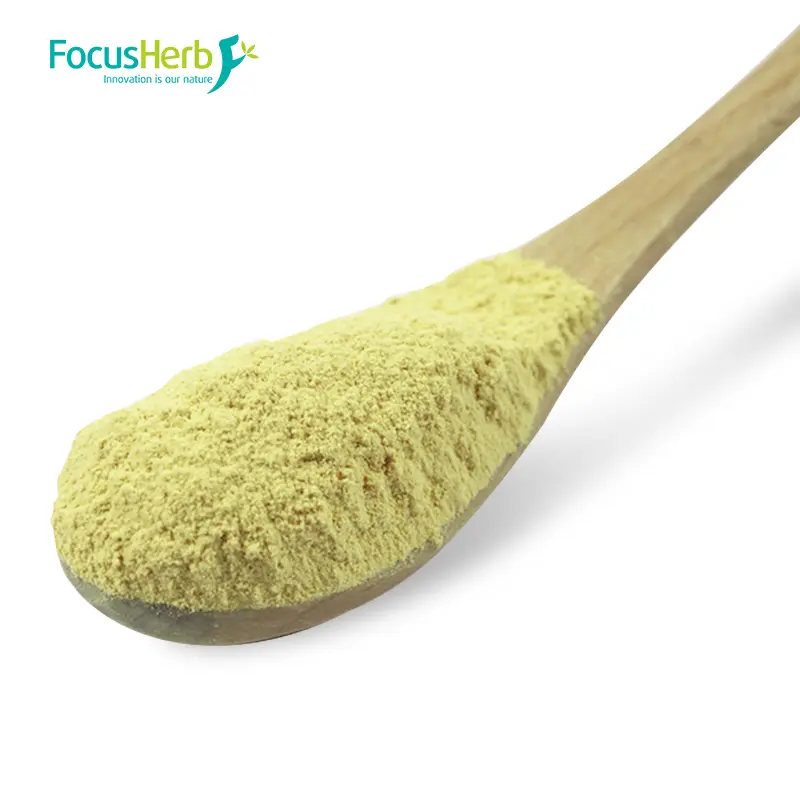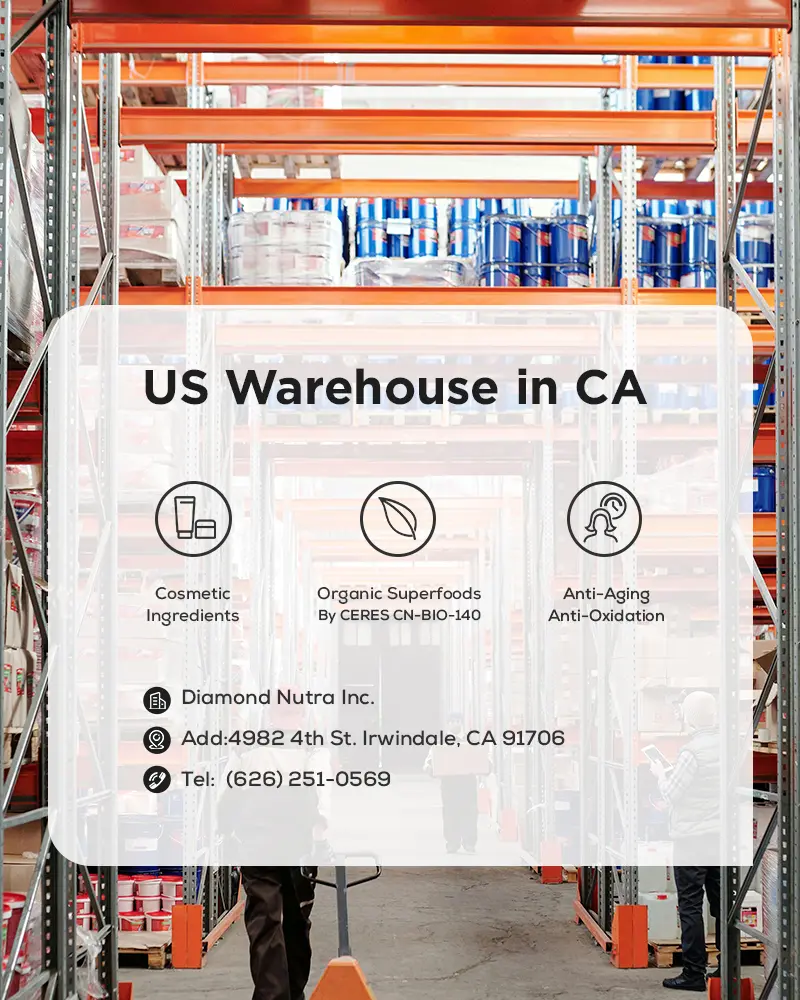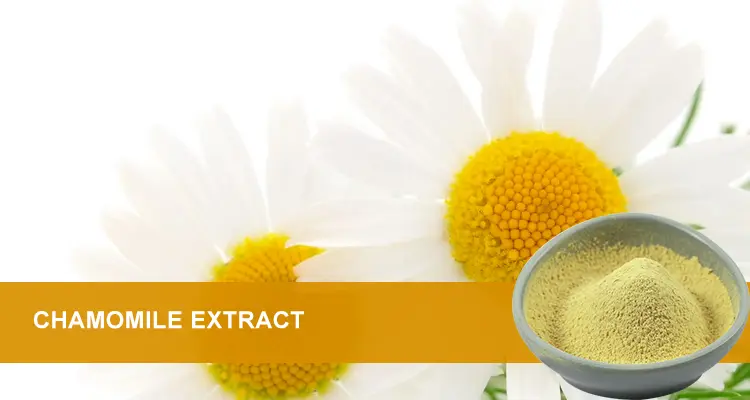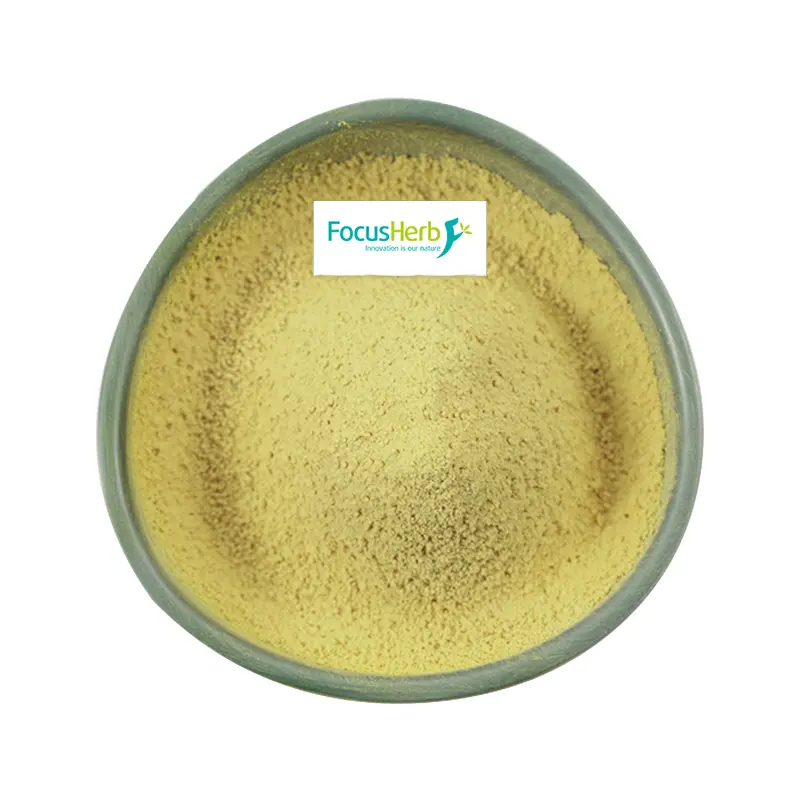Apigenin, also known as apigenin, is a flavonoid compound with the chemical name 4′,5,7-trihydroxyflavone and the molecular formula C₁₅H₁₀O₅. It is widely found in various plants as a yellow pigment, including many fruits and vegetables such as celery, garlic, broccoli, onions, apples, and oranges. Celery has a relatively high content, hence its name. It can also be found in plants of the Thymelaeaceae, Verbenaceae, and Selaginellaceae families. Pure apigenin is generally a yellow crystalline powder, odorless and tasteless. As a fat-soluble compound, it has poor solubility in water.
A Versatile Agent in the Medical Field
(I) A “Nemesis” of Cardiovascular Diseases
In today’s world where cardiovascular diseases are prevalent, apigenin has received widespread attention due to its unique cardiovascular protective effects. Studies have shown that apigenin can effectively inhibit the proliferation of vascular smooth muscle cells, a property of great significance in preventing cardiovascular diseases such as hypertension and arteriosclerosis. Abnormal proliferation of vascular smooth muscle cells is an important pathogenic basis for atherosclerosis and other vascular diseases. Apigenin reduces the risk of cardiovascular disease at its root by inhibiting their proliferation.
Apigenin also has a vasodilatory effect, reducing peripheral vascular and coronary artery resistance, thereby helping to lower blood pressure. Studies have shown that apigenin has a vasodilatory effect on the aortic ring contraction induced by phenylephrine in rats in vitro, providing strong evidence for the vasodilatory and blood pressure-lowering effects of apigenin. For patients with hypertension, regularly consuming celery rich in apigenin may be a simple and effective way to help lower blood pressure. Generally, noticeable effects can be seen after about two months of consistent consumption.
(II) A Secret Weapon in the Fight Against Tumors
Apigenin is an indispensable “potential asset” in the fight against tumors. It can inhibit tumor cell growth and induce tumor cell apoptosis. Studies on colorectal cancer cells have found that apigenin enhances the inhibitory effect of 5-fluorouracil on cell viability, inhibits the upregulation of 5-fluorouracil-induced thymidylate synthase, enhances 5-fluorouracil-induced apoptosis, and strengthens cell cycle disruption. Its apoptosis induction mainly depends on functional p53.
Apigenin can also inhibit tumor angiogenesis, invasion, and metastasis, curbing tumor development at multiple stages. The natural flavonoid apigenin has therapeutic effects on glioblastoma and neuroblastoma. Its anti-tumor mechanism includes inducing cell cycle arrest and apoptosis, and inhibiting cell migration, invasion, and angiogenesis. In bladder cancer cells (5637 cells), apigenin inhibited cell proliferation and induced apoptosis. The mechanism may be related to downregulating Bcl-2 and upregulating Bax expression, leading to a decrease in the Bcl-2/Bax ratio and PARP activation.
(III) A Pioneer in Antioxidant Action
Apigenin is an excellent “pioneer” in the body’s antioxidant defense system. It can reduce the generation of oxygen free radicals and inhibit lipid peroxidation, thereby delaying the aging process.
Apigenin is a strong metal ion chelator, which can reduce its participation in free radical reactions by chelating with metal ions, blocking the generation of oxygen free radicals. Simultaneously, apigenin has a strong scavenging effect on superoxide anions and lipid peroxides, and can also inhibit NO generation. Its molecular structure has three hydroxyl groups at positions 4′, 5, and 7 on rings A and B, which can combine with reactive free radicals to scavenge them. Furthermore, the phenolic hydroxyl groups at positions 5 and 7 can complex with metal ions, and the 7-hydroxyl group is highly acidic, all of which contribute to its antioxidant properties.
In the nervous system, apigenin can also inhibit the toxic effects of oxidative stress on nerve cells by directly scavenging or reducing the level of reactive oxygen species in nerve cells, or by reducing the content of malondialdehyde (MDA), the end product of lipid oxidation, and increasing the levels of antioxidant factors such as SOD, CAT, and GSH. It can also protect neurons by chelating metallic iron ions and reducing the level of free iron ions.
(IV) Other Medicinal Effects
In addition to the above effects, apigenin also has certain effects in calming the nerves and improving cognition. Multiple studies have shown that apigenin has a sedative effect, can significantly improve the learning ability and short-term memory of mice, and has a positive effect on improving sleep, allowing people to obtain better rest in their busy lives.
Food Industry’s “Treasure Trove” Additives
(I) Natural Food Coloring Agents
In today’s pursuit of both delicious taste and beautiful color, apigenin, with its unique hue, has become a new favorite in the food coloring industry. As a pale yellow powder, apigenin brings a unique charm to the appearance of food and can be used for surface coloring of biscuits, puffed foods, pastries, jellies, cooked meat products, popsicles, ice cream, and other foods, making them look more appealing. For example, in the production of some specialty pastries, adding apigenin gives the surface a delicate yellow hue, providing a visually pleasing experience and greatly enhancing the product’s attractiveness.
(II) Highly Effective Food Preservatives
In the long-term battle of food preservation, apigenin is a powerful “guardian.” It has dual antioxidant and antibacterial effects, effectively delaying the spoilage process of food. In terms of antioxidant properties, oils in food are highly susceptible to oxidation during storage, producing unpleasant odors and harmful substances. The phenolic hydroxyl groups in apigenin’s molecular structure can provide hydrogen atoms, which can combine with free radicals generated during oil oxidation, interrupting the chain reaction of free radicals and thus delaying the oxidative rancidity of oils. Adding an appropriate amount of apigenin to fried foods can help maintain good color and taste during their shelf life, extending their shelf life.
From an antibacterial perspective, apigenin has an inhibitory effect on common food bacteria, such as Staphylococcus aureus and Escherichia coli, as well as molds and yeasts. It can disrupt the bacterial cell membrane structure, insert into the phospholipid bilayer of the bacterial cell membrane, change the permeability of the cell membrane, leading to leakage of substances from the bacterial cell, thereby inhibiting bacterial growth and reproduction. For molds, it can inhibit spore germination and hyphal growth; for yeasts, it interferes with their cellular metabolic processes. Adding apigenin to baked goods such as bread and pastries, as well as fruit products, can effectively inhibit microbial growth, maintain food quality, and extend shelf life. In meat products, whether fresh or processed, apigenin can extend shelf life and reduce the risk of spoilage due to bacterial contamination by inhibiting the growth of bacteria and mold.
(III) Unique Flavoring Agent and Health Enhancer
In foods with unique flavors, apigenin can also play a unique flavoring role, adding distinctive characteristics to the product. Adding apigenin to some beverages or snacks that seek natural flavors can bring a fresh and unique taste, satisfying consumers’ exploration of novel flavors.
Apigenin is also added to functional foods, such as health drinks and nutritional supplements. Due to its antioxidant and anti-inflammatory bioactivities, apigenin can provide consumers with additional health protection in these functional foods, meeting people’s pursuit of a healthy life and promoting physical health.
A Potential Star in the Cosmetics Industry
(I) Excellent Sunscreen and Tanning Ingredients
Apigenin is an invaluable all-rounder in the development of sunscreen and tanning products. It has a strong absorption capacity for UVB ultraviolet rays, with absorption concentrated in the B region (wavelength between 280-320nm), protecting against radiation damage. Therefore, it can be used in sunscreen cosmetics to provide effective sun protection for the skin, reducing UV damage and preventing sunburn, sunspots, and other problems. Its absorption in the A region (wavelength between 320-400nm) is relatively low, allowing low concentrations of apigenin to be used as a skin-tanning agent in tanning oils, meeting the tanning needs of some consumers and allowing them to enjoy the sun while achieving a healthy, natural wheat-colored complexion.
(II) A Skin Guardian
Apigenin is a loyal guardian in protecting skin health. It has dual anti-inflammatory and antioxidant effects, effectively preventing skin problems such as vesicles, keratosis, and parakeratosis. When skin is exposed to external stimuli, such as ultraviolet radiation or environmental pollution, it is prone to inflammatory reactions and oxidative stress, leading to problems such as redness, itching, and dryness. Apigenin can inhibit the production of inflammatory mediators, reduce inflammation, and simultaneously scavenge free radicals, reduce oxidative damage, and protect the normal function of skin cells.
Apigenin can also inhibit melanocyte activity and reduce melanin synthesis, thereby preventing and improving skin problems such as age spots and dullness, making the skin whiter and brighter. High concentrations of apigenin are often added to cosmetics such as sunscreens, face creams, serums, toners, and masks to provide comprehensive care for the skin.
(III) A “Caregiver” for Hair
Apigenin also plays an important role in the development of hair care products, acting as a “caregiver” for hair. It can relieve scalp itching, improve the scalp environment, reduce dandruff, and make hair more refreshing and comfortable. For those suffering from scalp problems, shampoos, conditioners, and other hair care products containing apigenin are undoubtedly ideal choices for solving scalp issues.
A Versatile Agent in Industry and Other Fields
(I) A Versatile Agent in the Chemical Industry
In the chemical industry, apigenin is a versatile agent. It can serve as an intermediate in organic synthesis, used to synthesize fragrances, dyes, and other chemical products, optimizing product performance and giving them unique aromas and colors. Extracted from natural plants, apigenin undergoes a series of chemical reactions to transform into fragrances with distinctive aromas, adding a natural and fresh scent to perfumes, air fresheners, and other products. In dye synthesis, the molecular structure of apigenin can react with other chemical substances to form stable pigment molecules, used for dyeing textiles, paper, etc.
Apigenin can also play an important role in chemical production by supporting metal catalysts through its porous structure, improving reaction efficiency and reducing production costs. For example, in some organic synthesis reactions, loading metal catalysts onto apigenin can increase the active sites of the catalyst, making the reaction more efficient.
(II) A New Favorite in the Textile Industry
In the textile industry, apigenin also demonstrates unique value, becoming a new favorite within the industry. It can be used in the dyeing and finishing processes of textiles. Its surface activity optimizes dye penetration, improves dyeing results, and allows colors to adhere more evenly and firmly to the fabric. In the dyeing process of pure cotton fabrics, adding an appropriate amount of apigenin allows the dye to penetrate better into the fiber, thereby improving dyeing uniformity and color fastness.
The chemical stability of apigenin makes it a potential environmentally friendly finishing agent, helping to improve the quality and performance of fabrics. It can also be blended with cotton fibers, and through specific processes such as pretreatment with sodium hydroxide solution or weakly acidic resist agents, it can improve the color uniformity of blended fabrics, bringing new characteristics and advantages to textile products.

With the continuous deepening of scientific research and technological advancements, it is believed that apigenin will play an even greater role in the future. Future research can further explore the mechanism of action of apigenin, optimize extraction and synthesis processes, and improve its bioavailability and stability to better meet the needs of various fields. We also look forward to the application and expansion of apigenin in more fields, bringing greater benefits to human life and health.





















